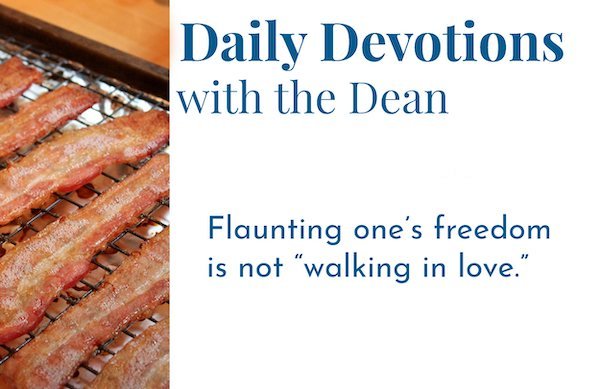Wednesday • 8/7/2024 •
Wednesday of Proper 13
This morning’s Scriptures are: Psalm 119:97-120; Judges 7:19–8:12; Acts 3:12-26; John 1:29-42
This morning’s Canticles are: following the OT reading, Canticle 11 (“The Third Song of Isaiah,” Isaiah 60:1-3,11a,14c,18-19, BCP, p. 87); following the Epistle reading, Canticle 16 (“The Song of Zechariah,” Luke 1:68-79, BCP, p. 92)
For the Lord and for Gideon! Gideon wins—well, the Lord wins—a glorious victory over the Midianites. Gideon participates in a mopping up exercise. He proves to be sage and conciliatory with the Ephraimites, but petty and vengeful with the residents of Succoth.
Peter and the man lame from birth. In yesterday’s reading from Acts, Peter had healed “a man lame from birth” in the Temple precincts. What the man had hoped for was “alms” (Gk = eleēmosynē), but what he received was God’s saving “mercy” (Gk = eleēmosunē). Not “silver and gold,” but, as the prophet Isaiah had put it: “So he [the Lord] defended them with his own arm, and with his mercy (eleēmosunē) he upheld them” — Isaiah 59:16 LXX, my translation). The man got so much more than he had dared to ask for. Praise be.
Image: Wally Gobetz, https://www.flickr.com/photos/wallyg/
https://www.flickr.com/photos/70323761@N00/5091018688
In today’s reading from Acts, Peter explains to the crowd what has just happened.
…why do you stare at us as though by our own power or piety we had made him walk? — Acts 3:12. Can you imagine Peter shouting, in Gideon-like fashion: “I did this for Jesus … and for Peter!”? No, you can’t. In fact, I think Peter and the other apostles with him in heaven are embarrassed to this day that the church named this book the Acts of the Apostles. This book is the Acts of Jesus by the Holy Spirit through the Apostles—it’s the continuation, says its writer, of what Jesus “began” to do in Luke’s Gospel: “In the first book, O Theophilus, I have dealt with all that Jesus began to do and teach…” (Acts 1:1 RSV).
To make it clear that it is not the dazzling spirituality of the apostles that has accomplished this miracle, Peter lists Jesus’s qualifications to be the actual healer:
God’s Servant (3:13, 26)
The Holy and Righteous One (3:14)
The Author of Life (3:15)
The Messiah (3:18, 20)
The Lord (3:19)
The Prophet (3:22)
The response called for is twofold. The first part of that response is repentance: turning from the wrong path of rejection of Jesus as Messiah, so that his cross can work its sin-forgiving and life-giving power in their lives: “Repent therefore, and turn to God so that your sins may be wiped out, so that times of refreshing may come from the presence of the Lord” (Acts 3:19-20).
The second part of the response is faith: “And by faith in his name, his name itself has made this man strong, whom you see and know; and the faith that is through Jesus has given him this perfect health in the presence of all of you” (Acts 3:16). In brief compass, Peter notes three remarkable features of faith:
It is faith in Jesus.
It is faith that comes from Jesus.
In this case, it is faith that has come with healing power.
Jesus and Andrew. “What are you looking for?” — John 1:38. One of the Bible’s most beautiful pictures of faith—if maybe its simplest—is the account of Andrew’s coming to Jesus, in today’s reading from John. When Jesus senses that Andrew and a friend are following him, he turns, and asks point-blank: “What are you looking for?” (John 1:38).
What a profound question. What a probing question. Jesus wants to know our agenda, what aspirations we’re projecting onto him. Surely John the Baptist’s teaching about Jesus being “the Lamb of God who takes away the sin of the world” had prompted a myriad of questions for Andrew. So, Jesus puts the question to the seeker, and the seeker has to decide whether it’s a “what” or a “who” that he is after.
Instead of pulling out a list of questions, Andrew simply asks in return, “Rabbi, where are you staying?” In other words, “I don’t know the answers to all my questions. But I realize I need to know the One who has those answers. Wherever you are, that’s where I want to be.”
Time and again, I sense Jesus putting the same question to me: “Just what is it you are looking for in me?”, all the while waiting for me to set aside my “next topic for discussion,” and to be satisfied simply to be where he is.
I love this story—I love (and am challenged by) imagining Jesus asking: “What are you looking for?”
Be blessed this day,
Reggie Kidd+






















